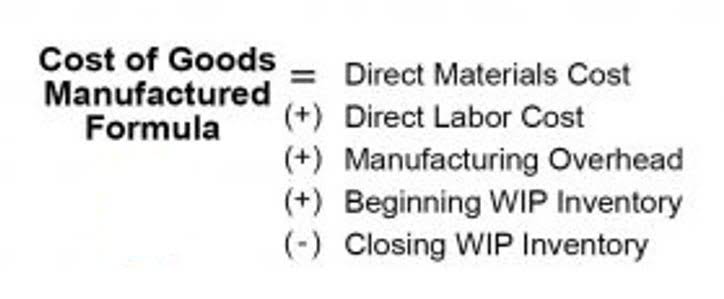
For instance, a company has invested in a bond that pays interest annually. Companies elect to make provisions for future obligations whose specific amounts or dates of incurrence are unknown. Provisions are like a hedge against possible losses that would impact business operations. For example, if a company’s clients don’t pay their bills or someone defaults on a loan, money put aside as provisions could be used to cover these losses. They are funds purposefully set aside to pay for anticipated but uncertain expenses.
Accrued Expenses vs Accounts Payable and Prepaid Expenses
Accrued expenses are recognized by debiting the appropriate expense account and crediting an accrued liability account. A second journal entry must then be prepared in the following period to reverse the entry. The most difficult part of recording accrued expenses is remembering to actually complete the journal entry and then reverse it on a later date when an invoice is received or payment is made. You incur an expense at the end of the accounting period when the debt you owe is yet to be billed.
Working with Financial Professionals
Such precautions to be observed about these accrued liabilities would be very much required from the company’s side so that it is not construed as being bookkeeping financially stressed. Furthermore, accrual revenues and expenses often use estimates, especially in items like utilities or wages. In case these have inaccuracies, the errors may result in overstatements or understatements of the same expense, giving wrong financial reports. This entry records the utility cost in December, ensuring that the expense is matched with the period when the service was consumed, even though the payment will be made in January.

Accrued Expenses in Financial Statements

Accrued expenses make a set of financial statements more consistent by recording charges in specific periods, though it takes more resources to perform this type of accounting. An example of an accrued expense https://www.bookstime.com/articles/accrued-expenses is when a company purchases supplies from a vendor but has not yet received an invoice for the purchase. Employee commissions, wages, and bonuses are accrued in the period when they occur, although the actual payment is made in the following period.
What are accrued expenses and when are they recorded?
By understanding where your money is going, even before it’s paid out, you can forecast profits more accurately and make more strategic decisions about resource allocation. This proactive approach to financial management contributes to better long-term planning and sustainable growth. Since cash basis accounting only recognizes expenses when the invoice has been received, it has no use for accounts payable or accounts receivable.

Accrued vs. Prepaid Expenses: What’s the Difference?

Accrued expenses play an important role in maintaining accurate financial records and understanding a company’s complete financial standing. Record Keeping for Small Business Utility services like electricity and water are consumed throughout the month, but bills are typically received and paid in the following period. Accruing these expenses ensures they are reflected in the period when the services were used.
- For businesses that follow the accrual accounting method, these expenses represent costs incurred but still need to be paid.
- Accounts payable, in contrast, spring into existence only after an invoice lands on your desk.
- E) Vendor Invoices represent purchases of received goods or services that payment occurs after the delivery date.
- Accrued expenses are recorded as liabilities on the balance sheet, representing amounts owed to external parties.
- Property taxes or income taxes may accrue over the year but are paid at specific intervals.
As such, an adjusting journal entry must be recorded at the end of the accounting period for the expenses incurred in the last month. The journal entry will be dated December 31st and will be recorded as a credit to the salaries payable account on the balance sheet and a debit to the salaries expenses account on the income statement. This expense has occurred; the work is done, but the cash hasn’t left your account yet. It’s crucial for you to record this to maintain a realistic view of your company’s financial obligations within the current accounting period. Not only does this keep your profit and loss statement accurate, but it also ensures that there will be no surprises when the invoice arrives.
Accrual of Expense
- Accrued expenses, also known as accrued liabilities, can be either a credit or a debit depending on the situation.
- Businesses should review and adjust their accrued expenses at least at the end of each accounting period, which is typically monthly or quarterly.
- It is important for an organization to correctly account for accrued expenses throughout the year based on services received but not yet invoiced.
- In accrual accounting, you record income and expenses when they are earned or recorded, regardless of whether cash has been received or paid.
- They’re also tied to a specific accounting period and are recorded regardless of when the cash payment occurs.
- Explore opportunities for business tax credits that may be available to your company, as these can provide valuable financial benefits alongside proper accrued expense management.
- Accrued expenses are a cornerstone of accrual accounting, a method that records revenues and expenses when incurred, regardless of when cash changes hands.
This method is most commonly used by construction companies that are contracted to work on buildings, public sector infrastructure, energy facilities, and other long-term physical objects. For instance, a company uses electricity to power its operations and pays for this consumption later when the meters have been read and the bill arrives. To improve reporting accuracy and timeliness, many finance leaders turn to specialized financial operations software tools like BILL.
- The accrual method requires appropriate anticipation of revenues and expenses.
- They represent costs that a business has incurred in a specific period but has not yet paid for.
- This contrasts with cash-basis accounting, where expenses are recorded only when cash changes hands.
- Accurate accrual accounting ensures your balance sheet accurately reflects your company’s current liabilities, and your income statement shows a true picture of your financial performance.
- For example, if you pay one year’s worth of rent up front, you’ve prepaid your rent expense.
Schedule and record payments
- ABC Company pays utilities through Electric Co. and is invoiced quarterly based on usage for the prior 3 months .
- Prepaid expenses are payments made in advance for goods and services that are expected to be provided or used in the future.
- Once payments have been made, the accountant may also adjust the amounts to reflect actual payments made against the firm’s accrued expenses.
- The accrued expense account is debited and the expense account is credited.
- Accrual accounting can be particularly challenging if you’ve recently switched from cash accounting and can leave those less experienced in bookkeeping or accounting confused.
For instance, a company has a payroll period that ends on the last day of the month, but it pays its employees on the 10th of the following month. Accrued assets are recorded as an asset on the balance sheet and are recognized as revenue on the income statement. Accrued revenues are revenues that have been earned but have not yet been received. Examples of accrued revenues include interest income and accounts receivable.
